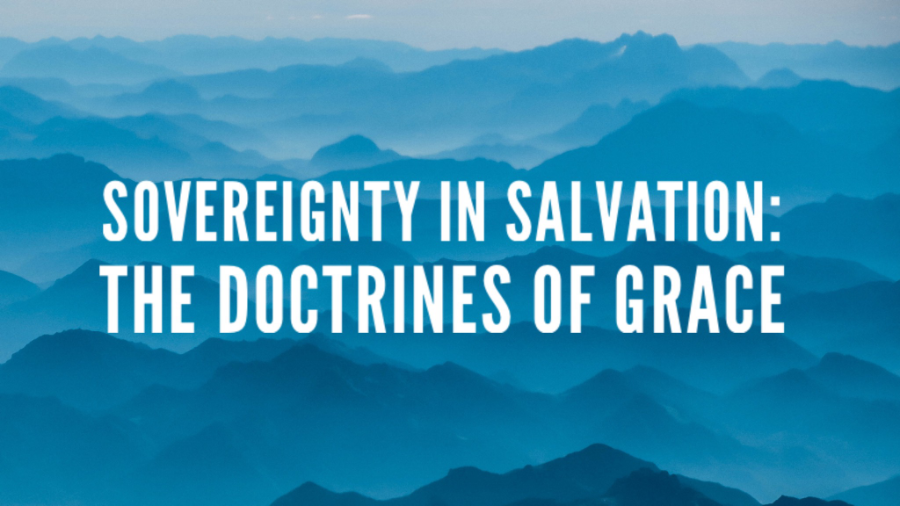When it comes to the atonement of Christ, there are certain essentials that all true Christians must be in agreement on. For example, we must believe that Christ actually died on the cross and reject any opposing heresies (a popular one being the swoon theory: a belief that Jesus did not really die on the cross but rather became unconscious and was later resuscitated). We must also agree that Christ’s death was a legal transaction, in that a double imputation took place between Christ and the sinner, for as the Scripture says, “He made Him who knew no sin to be sin on our behalf, so that we might become the righteousness of God in Him” (2 Corinthians 5:21). Adding to our list of essentials, we must also believe that Jesus died the death we deserved, and became our substitution, a view of the atonement known as penal substitutionary atonement. We must embrace the voluntary nature of Christ’s sacrifice, while rejecting any claims that downplay or deny it (i.e. “Jesus was a victim”, “Jesus died merely as an example of suffering”, etc.). And finally, we must affirm that the atonement of Christ was a complete removal of sin, and not a mere covering of sin as the Old Testament sacrifices were.
While those aforementioned positions are essential to a right understanding of the atonement of Christ, there are other disagreements that different believers will have who are still within orthodoxy. As with all other secondary and tertiary matters within theology, however, that does not mean that these issues are not important for our consideration, and we should therefore do everything we can through the means of grace provided to us to determine the correct understandings and hold to those convictions, not being “…tossed here and there by waves and carried about by every wind of doctrine” (Ephesians 4:14). Perhaps there is no secondary issue in this particular area that is more prevalent among sound, Bible-teaching churches today than the extent of Christ’s atonement. For whom did Christ die? Did Christ die for everyone, or did He die only for a particular people? That is the question that we will seek to answer as we begin to bring this series in for a landing.
Ask the typical evangelical Christian that very question, and chances are pretty good that the response will be “He died for everyone”. This is, in fact, a majority position in Protestant churches today. Even among reformed believers, some describe themselves as “Four-point Calvinists”, and more often than not, the one thing that keeps them from embracing all five points is the issue of limited atonement. But why is this the case? I would submit to you that the most popular reasoning behind this objection is that the love of God is somehow at stake. After all, how can a loving God completely cut off the possibility of salvation for individuals by not providing atonement for them, especially when there are passages that seemingly contradict that notion such as John 3:16 and Revelation 22:17? But this objection is faulty because it undermines the harmony of the Trinity, the harmony of God’s divine attributes, and the very meaning of grace and love.
In today’s blog, we will consider the harmony of the Trinity. God is one in being, and also three in personhood: Father, Son, and Holy Spirit. Each of the Persons have distinct roles (The Spirit submits to the Son and the Son submits to the Father), yet each of the Persons in the Godhead is fully God (as opposed to one-third deity) and They have one will, meaning that They are always in perfect agreement with one another and work together in perfect harmony. I remember in my younger years when I thought of the doctrine of the Trinity as one of those deep, unfathomable truths about God that we have to understand rightly lest we find ourselves not worshipping the true God in the first place. While that is certainly true, and that to deny the Trinity is indeed a damnable heresy, the importance of this doctrine was what I undoubtedly understood the least. It wasn’t until I began to embrace reformed theology that I started to understand how the doctrine of the Trinity plays a vital role in grasping the most profound truths concerning the gospel itself. The Father, Son, and Holy Spirit are in fact perfectly harmonious with one another, but that harmony doesn’t just exist way out in the heavenly realm: it is everywhere, including in the work of our salvation!
When God decreed our salvation in eternity past and paid for it in a moment of time at a place called Calvary, all three Persons were co-involved in that endeavor and They were perfectly cooperative with one another as a single, unbroken entity. We see this clearly laid out in Ephesians 1. The Father elected and adopted us as sons and daughters (v. 3-6), the Son provides the atonement for us (v. 6-8), and the Spirit secures our eternal inheritance by indwelling and sealing us (v. 13-14). While these are the roles that each Member of the Trinity carries out, it doesn’t end there. In Romans 8:28-30, a passage commonly referred to as the “golden chain of salvation”, the apostle Paul wrote some amazing words about those whom God has chosen in eternity past. The same people who are foreknown by God, are predestined for eternal life, received the effectual call of salvation, have been justified, and will one day be glorified. There is no such thing as someone who is justified through the propitiatory work of Christ but not elected by the Father before the foundation of the world, or vice versa. As Jesus plainly said, “This is the will of Him who sent Me, that of all that He has given Me I lose nothing, but raise it up on the last day” (John 6:39).
What does this mean? It means that the people whom the Father elected in eternity and the people whom the Son provided the atonement for on the cross are one in the same. Therefore, to say that the atonement is universal while maintaining that only some have actually been chosen by God for salvation would put the Members of the Trinity at odds with one another. What about those passages such as John 3:16 and Revelation 22:17 that seem to imply a necessary universal atonement? Next time, we will seek to explain how to rightly understand those “invitational” passages while also maintaining a limited or particular atonement, because as we have already pointed out, a universal atonement is incompatible with God’s divine attributes and the very meaning of love itself.

